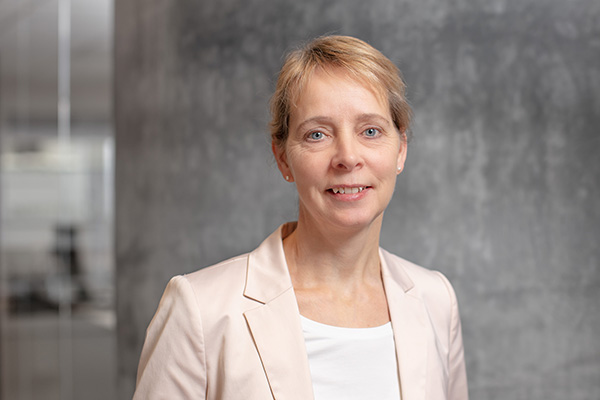Our durable reusable plastic load carriers meet the requirements of the new EU regulation.
PPWR: Promoting Recyclable Reusable Systems
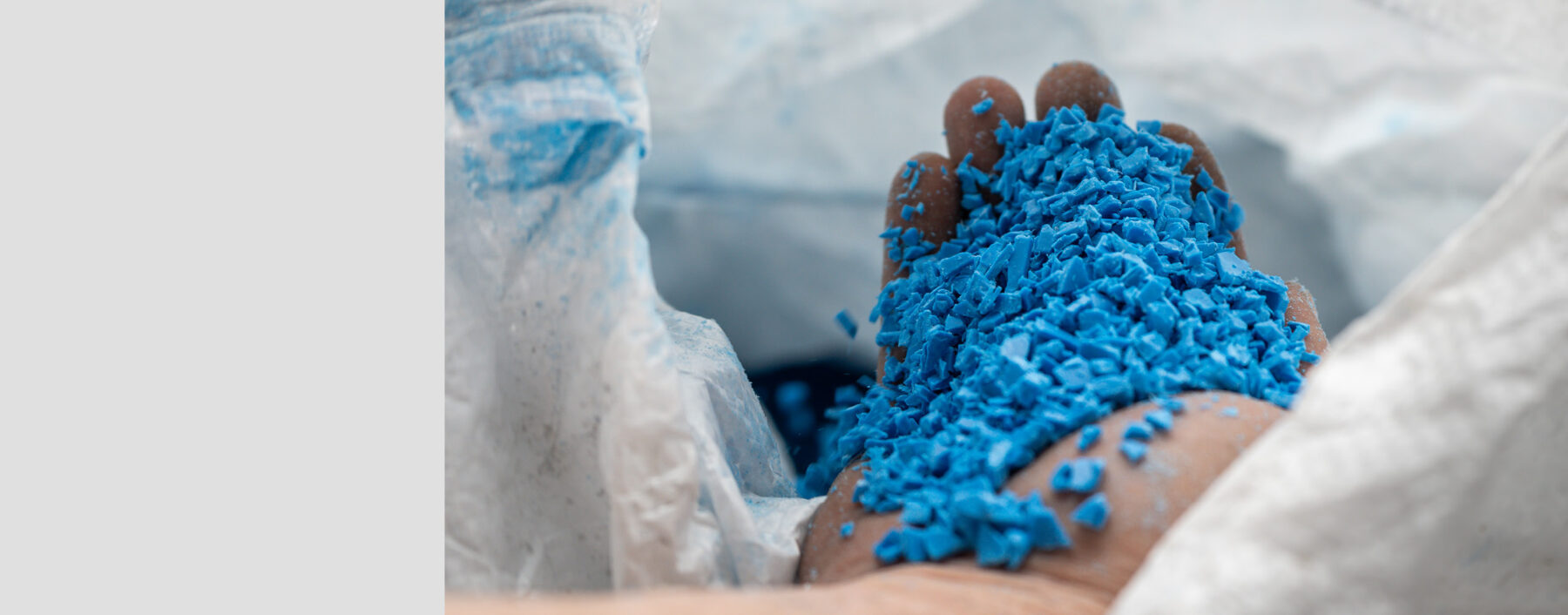
Packaging and Packaging Waste Regulation
Promoting recyclable and reusable systems
Your path to compliance with the new EU PPWR regulation
The new EU Packaging and Packaging Waste Regulation (PPWR) marks a significant milestone in European environmental legislation. It urges companies to reduce packaging waste and single-use packaging while promoting recyclable materials and reusable packaging.
With our reusable load carriers, we support our customers in meeting these requirements. We are continuously improving our solutions and increasing the use of recycled materials.
On this page, we explain what exactly the PPWR is, how WALTHER Faltbox Group’s products comply with the new packaging regulation and how we can help you to act sustainably, efficiently, and future-proof your operations.
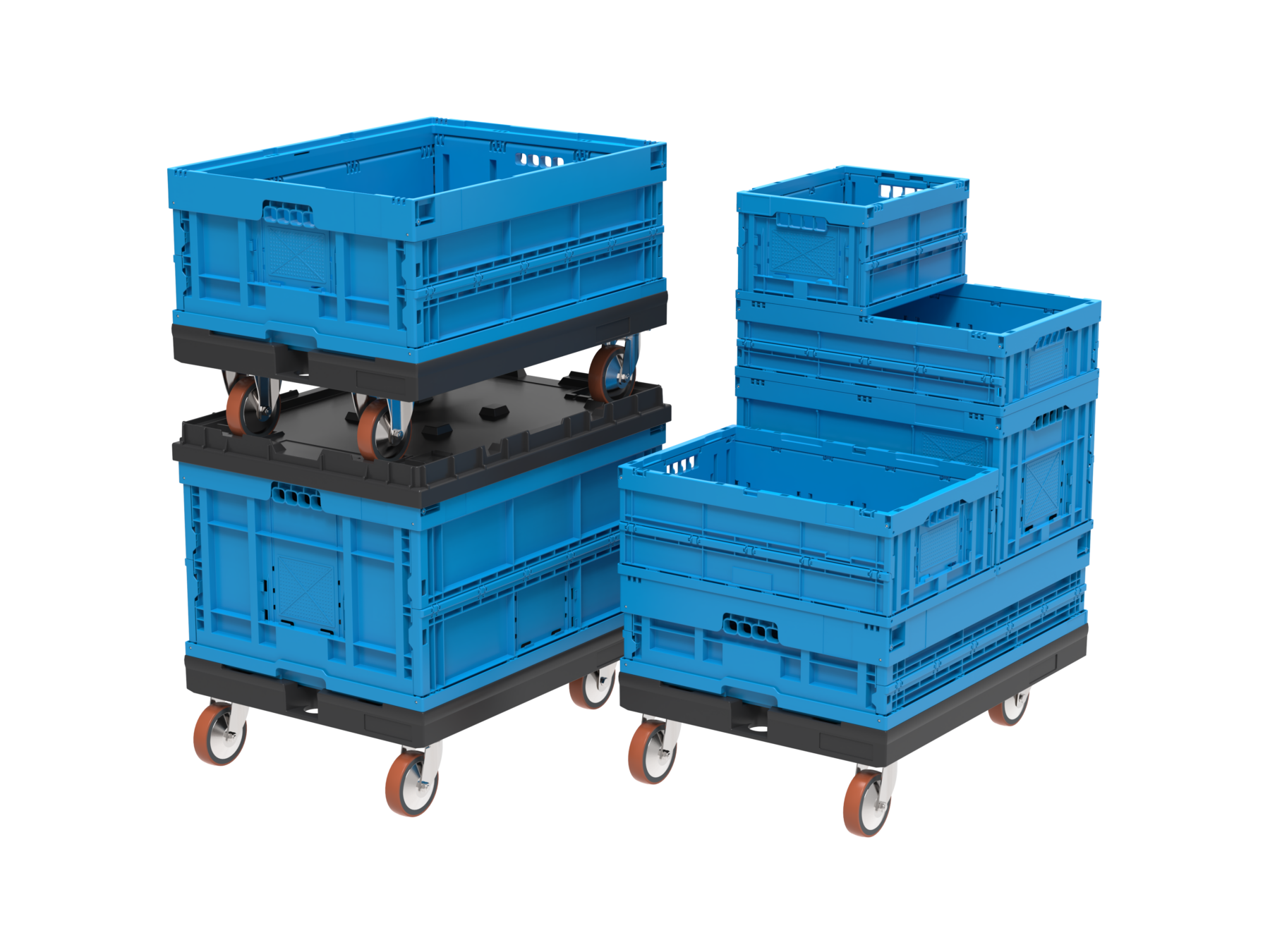
Answers about the
Packaging and Packaging Waste Regulation
As a specialist in reusable packaging, we have over 45 years of experience in supporting our customers optimise their logistics processes. Together, we develop customized, sustainable solutions that not only meet your requirements, but also comply with the PPWR. Here we provide answers to questions about the new regulations.
The PPWR (Packaging and Packaging Waste Regulation) is the new EU packaging regulation that replaces the previous Packaging Directive (94/62/EC). Its aim is to reduce packaging waste across the EU, improve recycling and promote reusable systems. What makes it unique? As a regulation, the new rules automatically apply in all EU member states, ensuring uniform standards across the EU market.
The new regulations aim to curb the growing waste problem and eliminate unnecessary packaging – throughout Europe. At the same time, the PPWR strengthens the circular economy: packaging must be easier to recycle or reuse in order to conserve resources. Additionally, companies will face increasing obligations to adopt reusable packaging solutions.
While these regulations may initially require adjustments and involve additional costs for many companies, they will make an important contribution to climate protection. By reducing packaging waste and creating a more efficient circular economy, CO₂ emissions will decrease noticeably.
The previous EU Packaging Waste Directive regulated similar aspects, particularly the prevention and recycling of packaging waste. The PPWR updates and expands this directive by introducing stricter measures to promote the circular economy and further reduce the environmental impact of packaging.
The European Packaging Regulation made significant progress in December 2024. On 27 November 2024, the EU Parliament adopted the regulation, followed by the approval of the EU Council on 16 December 2024. It was published in the Official Journal of the European Union on 22 January 2025 and officially came into force 20 days later, in early February 2025. The new rules will start applying 18 months later, in mid-2026.
The new EU regulation applies to virtually all types of packaging, from consumer sales packaging to transport packaging used for shipping goods, as well as secondary packaging used to group products. It also covers packaging for industrial products and single-use packaging, such as plastic bags and films.
The PPWR applies to all companies in the supply chain, including manufacturers, retailers, importers and distributors. Companies that place packaging on the market must comply with the regulation’s requirements to ensure compliance with new environmental standards. This applies to both large corporations and small businesses selling packaged goods within the EU.
The PPWR comprehensively governs the entire life cycle of packaging, from production and usage to disposal and recycling. It establishes clear rules on material use, recycling rates, and the reduction of single-use packaging. Additionally, the regulation defines design requirements to ensure packaging conserves resources and is as environmentally friendly as possible.
The PPWR aims to reduce packaging waste, promote reuse and recycling, and eliminate single-use packaging. A key objective is to close the material loop by reintegrating used packaging into the production process or repurposing it as raw material. At the same time, the regulation seeks to minimise the environmental impact of packaging, conserve natural resources, and reduce its carbon footprint.
Your partner for sustainable packaging solutions aligned with the PPWR
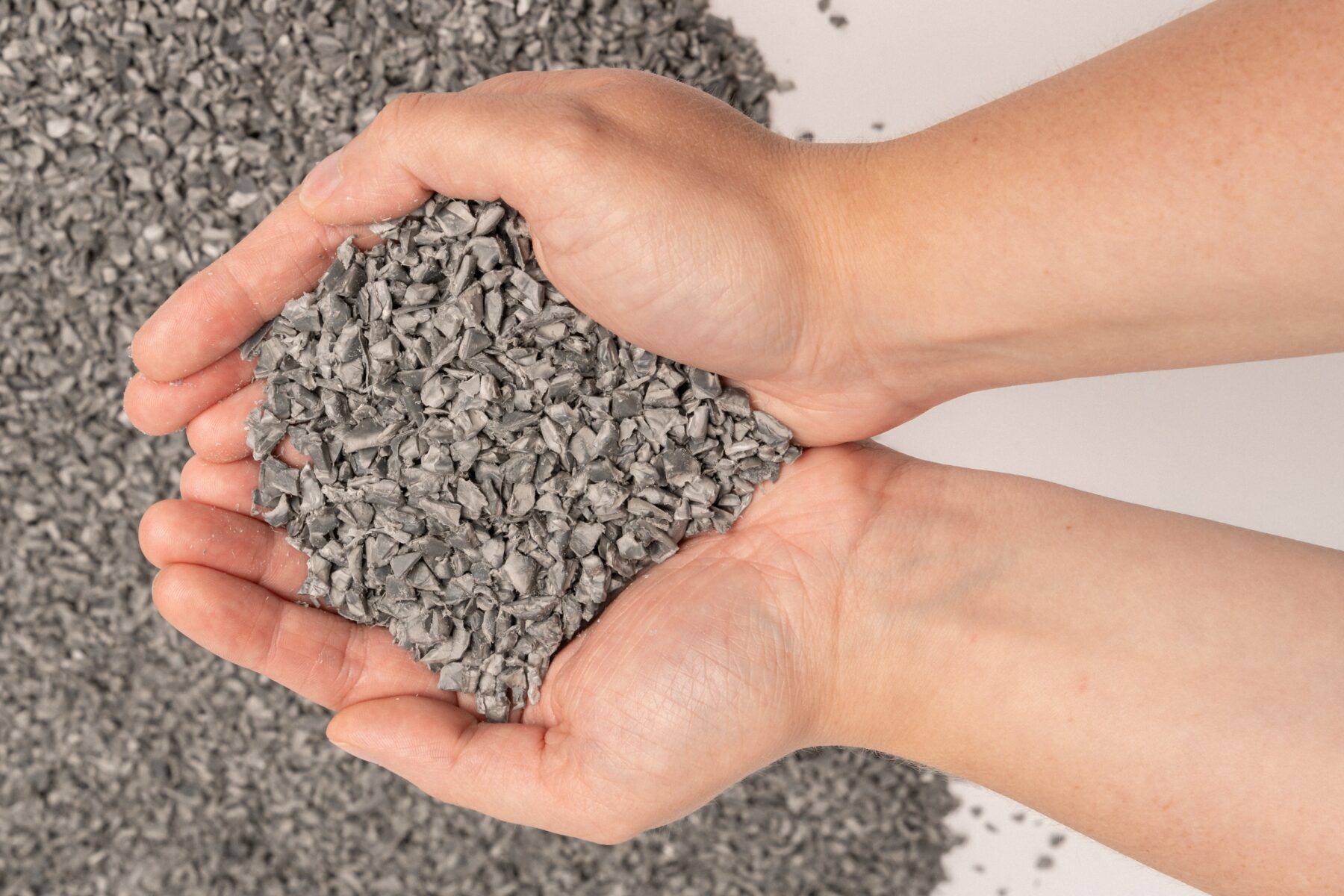
Recycling and circular economy
Promoting closed material loops
A key aspect of the PPWR is the recyclability of packaging. WALTHER Faltbox is strongly committed to a sustainable circular economy, continuously working to use materials efficiently and minimise the environmental impact. While challenges remain in some areas, our goal is to keep improving the recycling process.
- Up to 100% recyclable materials: Our folding boxes are made of high-quality plastics that can be recycled and reused multiple times.
- Increased use of recycled materials: We are continuously increasing the proportion of recycled plastic in our products and reducing the use of virgin material.
- In-production recycling: Defective products and scrap materials are directly reused in the manufacturing process.
- Take-back of defective boxes: Unlike disposable packaging, our plastic containers retain their material value even after use. At the end of their life cycle, we take back defective boxes and recycle them to create valuable raw materials for new products.
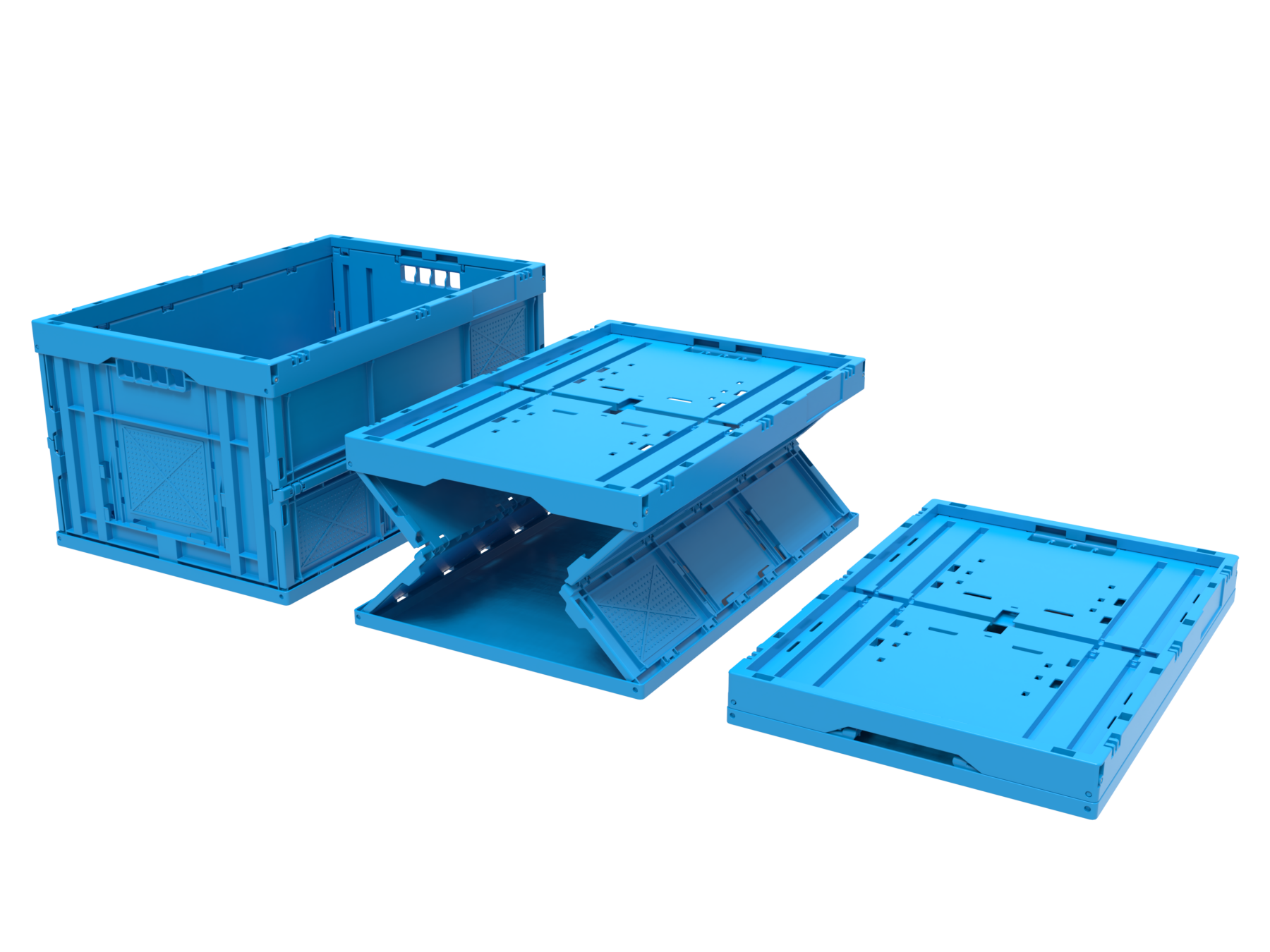
Waste reduction through reusable packaging
Efficient and sustainable packaging solutions
The PPWR calls for a drastic reduction in single-use packaging to minimise waste. Our reusable containers actively contribute to this:
- Eliminating single-use packaging: Our durable reusable boxes replace inefficient disposable packaging, significantly reducing waste.
- High circulation rate: When handled properly, each of our boxes achieves around 200 cycles, which drastically lowers resource consumption.
- Easy to clean: Our products can be hygienically cleaned and reused across various industries.
- Repairability: Defective components can be replaced, significantly extending the service life of our boxes.

Traceability and labelling
Ensuring transparent supply chains
Another key aspect of the PPWR is the traceability of packaging. WALTHER Faltbox supports companies with innovative tracking solutions:
- Individual labelling: Our boxes can be equipped with RFID tags, barcodes, or QR codes to ensure seamless traceability.
- Digital management: Smart tracking systems enable companies to efficiently manage their load carriers and minimize losses.
- Enhancing logistics efficiency: Digital labeling systems help optimise warehouse and transport processes, contributing to more sustainable supply chains.

WALTHER Faltbox helps you comply with the PPWR
Contact us now
Do you have any questions regarding our reusable load carriers?

Raphael Löbbing
Authorised Representative | Head of Sales

